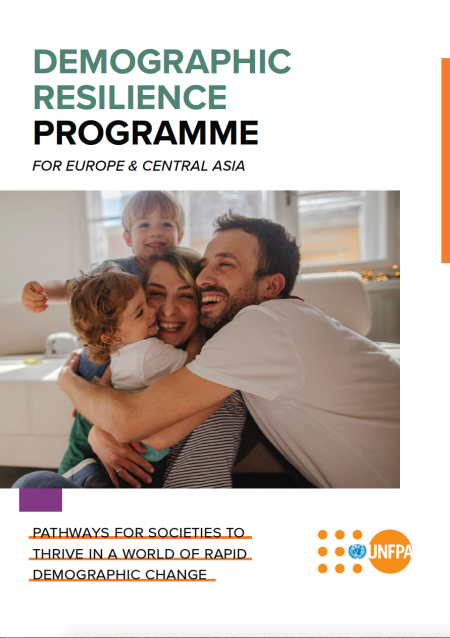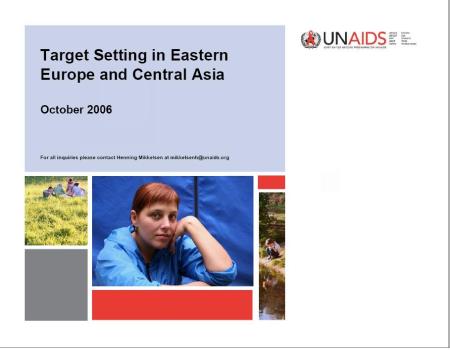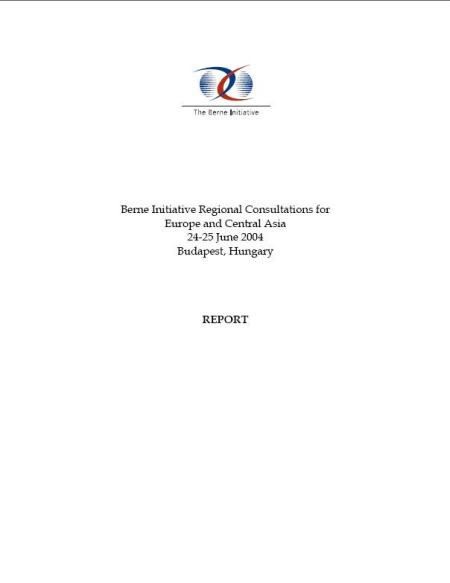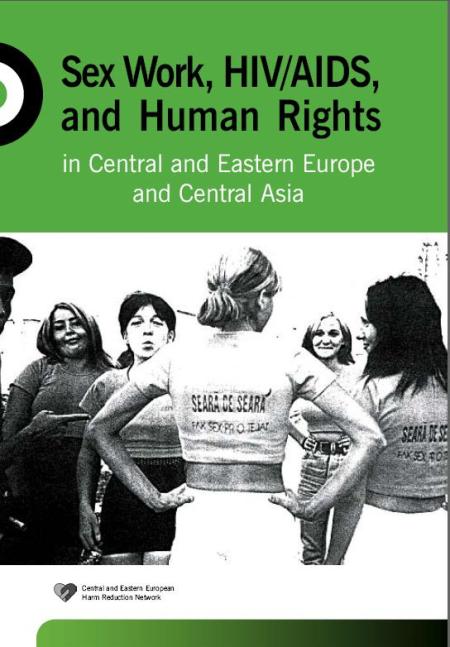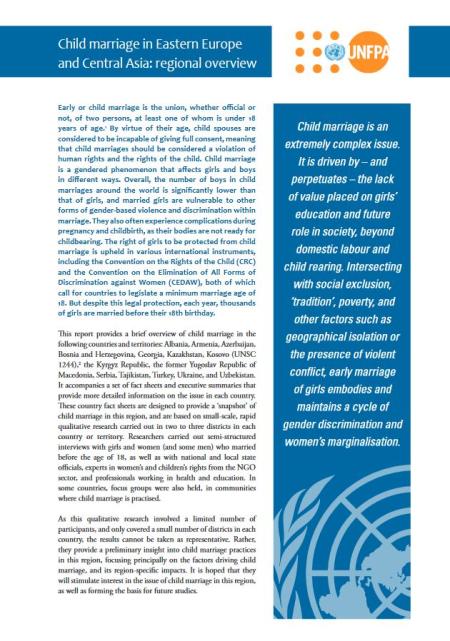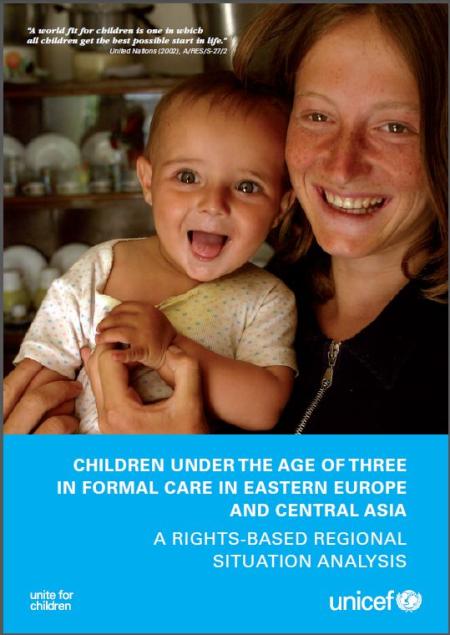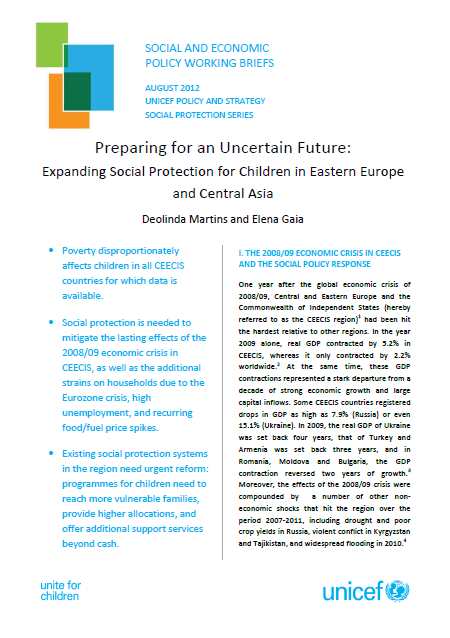
This brochure provides an overview of UNFPA’s Demographic Resilience Programme, which aims to strengthen the capacity of countries in Europe and Central Asia to respond to the profound demographic shifts the region is experiencing. Many countries in the region are grappling with how to respond to demographic trends like low fertility, population ageing and outmigration and their effects on the economy, social systems and services. With this new programme UNFPA offers a wide range of tools that help address population dynamics in a holistic manner, enabling countries to mitigate negative effects and fully harness the opportunities that come with demographic change.

You might like..
0
1
This document contains the update targets and the outcome targets for 2010, of the countries in Eastern Europe and Central Asia.
0
2
The main objective of these second regional consultations of the Berne Initiative was for participants from Europe and Central Asia to explore the concept and to contribute to the development of an International Agenda for Migration Management.…
yes
0
329
This ChildHub infographic identifies the facts, figures and trends of child labour in the region. It also provides suggestions on what government officials and Child Protection Professionals can do to reduce child labour.
Sources:
1)…
yes
0
137
This ChildHub video presents ten features of forced marriage among children in Europe and Central Asia. Forced marriage is an emerging problem in the region, and it is increasingly important to understand the features of child marriage specific to…
0
25
The aim of this report is to raise awareness on the key concerns and issues affecting sex workers to enable planning and implementation of appropriate health and social policies. The report focuses on the following: HIV/STI epidemiological history…
0
141
"This report provides a brief overview of child marriage in the following countries and territories: Albania, Armenia, Azerbaijan, Bosnia and Herzegovina, Georgia, Kazakhstan, Kosovo (UNSC 1244),2 the Kyrgyz Republic, the former Yugoslav Republic of…
0
8
The news gives information about the event (on Feb 12, 2021, at 10:00 AM in CET) which targets education stakeholders, policy‑makers, teachers, parents, and learners, and will present the report about the inclusive education and…
0
11
A regional conference, ‘Optimal Nutrition of Infants and Young Children in Order to Prevent Inadequate Nutrition in Europe and Central Asia’, was held in Belgrade, 1–5 July.
Experts from UNICEF Europe & Central Asia, WHO Regional Office for…
0
11
Countries in the CEECIS region have traditionally relied heavily on formal care for children. For the most vulnerable families, placing a child in an institution is a choice guided both by necessity and love, and sometimes even encouraged by the…
0
4
According to UNICEF, almost 4 million children are living with disabilities in Eastern and Central Europe and Central Asia and do not have access to qualified and inclusive education. Ms. Afshan Khan, UNICEF’s Regional Director for…
0
7
One year after the global economic crisis of 2008/09, Central and Eastern Europe and the Commonwealth of Independent States had been hit the hardest relative to other regions. In all the countries of the region for which data is available…
0
10
The report is based on a comparative analysis of country reports presented in the framework of the Child Trafficking in Central Asia Project supported by the Government of Japan and managed by UNICEF country offices in Kazakhstan, Kyrgyzstan,…
0
35
The Annual Review is ILGA-Europe’s annual publication documenting legal, political and social developments in 54 countries and 4 European institutions over the past calendar year. It is a unique report tracking key positive and negative trends in…
0
7
The Eurasian Women’s Network on AIDS, with support from UNFPA's Regional Office for Eastern Europe and Central Asia, has launched a dedicated hotline to help people living with HIV and key populations in Eastern Europe and Central Asia…
0
3
Sport and Development reports on the initiatives carried out by The Scort Foundation. The Scort Foundation, a Swiss non-profit organization, founded the Football Club Social Alliance (FCSA) in 2007. Scort Foundation and Football Club Social Alliance…

